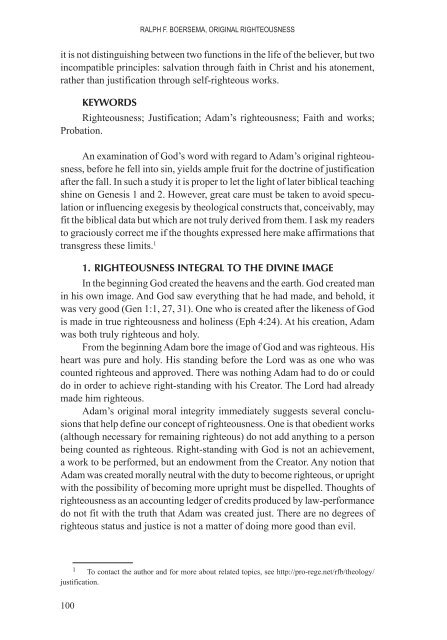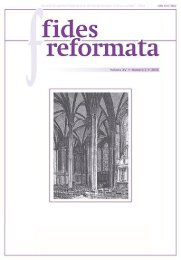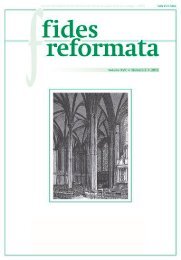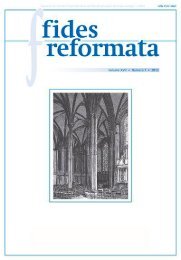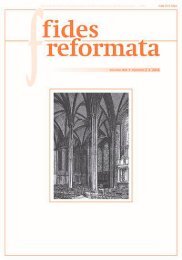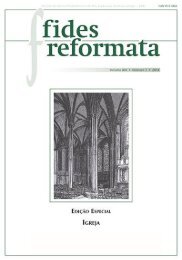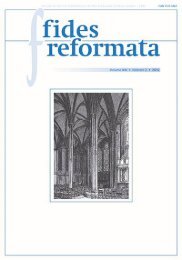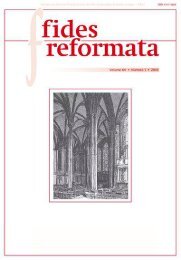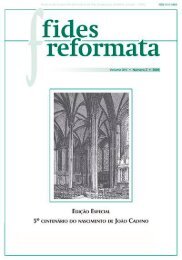Fides 18 N2 - Revista do Centro Presbiteriano Andrew Jumper
Revista Fides Reformata 18 N2 (2013)
Revista Fides Reformata 18 N2 (2013)
You also want an ePaper? Increase the reach of your titles
YUMPU automatically turns print PDFs into web optimized ePapers that Google loves.
Ralph F. Boersema, Original Righteousness<br />
it is not distinguishing between two functions in the life of the believer, but two<br />
incompatible principles: salvation through faith in Christ and his atonement,<br />
rather than justification through self-righteous works.<br />
keywords<br />
Righteousness; Justification; Adam’s righteousness; Faith and works;<br />
Probation.<br />
An examination of God’s word with regard to Adam’s original righteousness,<br />
before he fell into sin, yields ample fruit for the <strong>do</strong>ctrine of justification<br />
after the fall. In such a study it is proper to let the light of later biblical teaching<br />
shine on Genesis 1 and 2. However, great care must be taken to avoid speculation<br />
or influencing exegesis by theological constructs that, conceivably, may<br />
fit the biblical data but which are not truly derived from them. I ask my readers<br />
to graciously correct me if the thoughts expressed here make affirmations that<br />
transgress these limits. 1<br />
1. righteousness integral to the divine image<br />
In the beginning God created the heavens and the earth. God created man<br />
in his own image. And God saw everything that he had made, and behold, it<br />
was very good (Gen 1:1, 27, 31). One who is created after the likeness of God<br />
is made in true righteousness and holiness (Eph 4:24). At his creation, Adam<br />
was both truly righteous and holy.<br />
From the beginning Adam bore the image of God and was righteous. His<br />
heart was pure and holy. His standing before the Lord was as one who was<br />
counted righteous and approved. There was nothing Adam had to <strong>do</strong> or could<br />
<strong>do</strong> in order to achieve right-standing with his Creator. The Lord had already<br />
made him righteous.<br />
Adam’s original moral integrity immediately suggests several conclusions<br />
that help define our concept of righteousness. One is that obedient works<br />
(although necessary for remaining righteous) <strong>do</strong> not add anything to a person<br />
being counted as righteous. Right-standing with God is not an achievement,<br />
a work to be performed, but an en<strong>do</strong>wment from the Creator. Any notion that<br />
Adam was created morally neutral with the duty to become righteous, or upright<br />
with the possibility of becoming more upright must be dispelled. Thoughts of<br />
righteousness as an accounting ledger of credits produced by law-performance<br />
<strong>do</strong> not fit with the truth that Adam was created just. There are no degrees of<br />
righteous status and justice is not a matter of <strong>do</strong>ing more good than evil.<br />
1 To contact the author and for more about related topics, see http://pro-rege.net/rfb/theology/<br />
justification.<br />
100


